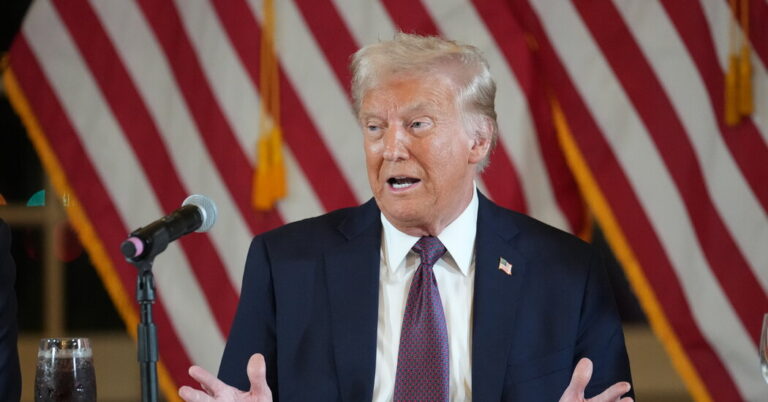Here is the text without any extraneous lines:
The Trump administration on Tuesday added 80 companies and organizations to a list of companies that are barred from buying American technology and other exports because of national security concerns.
The move, which targeted primarily Chinese firms, cracks down on companies that have been big buyers of American chips from Nvidia, Intel and AMD.
One company added to the list, Nettrix Information Industry, was the focus of a 2024 investigation by The New York Times that showed how some Chinese executives had bypassed US restrictions aimed at cutting China off from advanced chips to make artificial intelligence.
Nettrix, one of China’s largest makers of computer servers that are used to produce artificial intelligence, was started by a group of former executives from Sugon, a firm that provided advanced computing to the Chinese military and built a system the government used to surveil persecuted minorities in the western Xinjiang region.
In 2019, the United States added Sugon to its “entity list,” restricting exports over national security concerns.
The Trump administration also expanded its penalties on Tuesday to several subsidiaries of Inspur Group, which has been a significant customer of Intel and other US technology firms.
The Biden administration added Inspur’s parent company to the entity list in 2023, but after a brief pause, US companies continued to do business with Inspur’s subsidiaries.
Trade experts have said the impact of US entity listings can be easy for companies to dodge, because the entity listing is tied to a specific name and address.
Tuesday’s entity listings together will affect a significant portion of the Chinese market for servers, a type of computer that is necessary to generate artificial intelligence.
The Trump administration also added a special designation to its restrictions to expand the penalties globally, which will stop companies from trying to bypass US rules by exporting products to the Chinese firms from countries other than the United States.
The entity list was created under the Clinton administration to prevent adversaries from developing weapons of mass destruction, but presidents have wielded it increasingly aggressively over the past decade.
Source link




